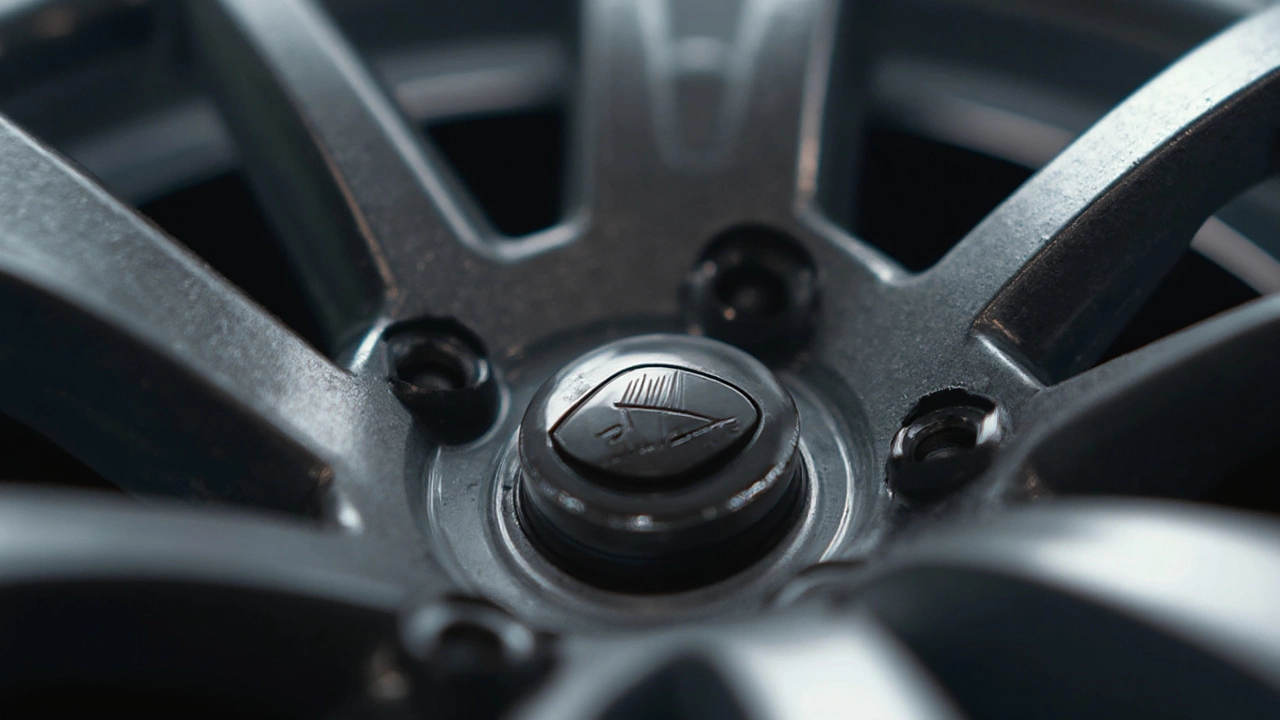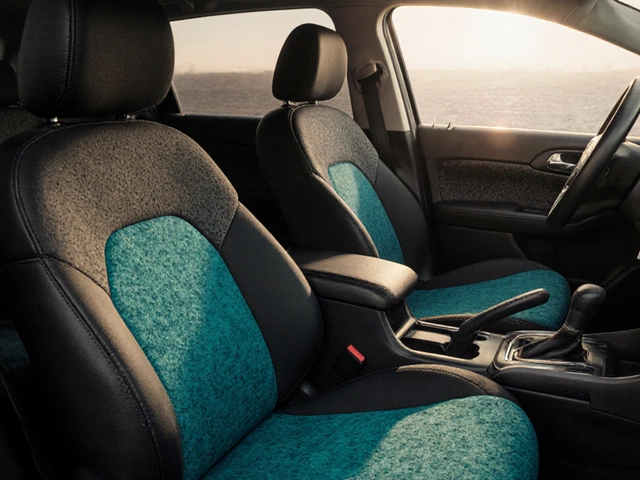Ever found yourself staring at your car's rims, wondering what they're made of? You're not alone. For car enthusiasts and everyday drivers alike, knowing whether rims are aluminum or alloy can be a bit of a puzzle. But don't worry, I've got you covered.
The first thing to understand is that 'alloy' basically means the rims are made from a mixture of metals. Aluminum rims, on the other hand, are made primarily from—you guessed it—aluminum, often with a tinge of other metals for extra strength.
So, how can you tell what you have? A good starting point is the weight. Aluminum rims are typically lighter than their alloy counterparts. If you can lift the wheel more easily than expected, there's a chance you're dealing with aluminum.
- Understanding Rims: Aluminum vs. Alloy
- Simple At-Home Tests
- Visual Cues to Consider
- Weight and Performance Differences
- Why Knowing Matters
Understanding Rims: Aluminum vs. Alloy
When it comes to car wheels, understanding the difference between aluminum rims and alloy wheels can save you a lot of guesswork, not to mention help you make better buying decisions. Let's break it down.
What Are Aluminum Rims?
Aluminum rims are crafted primarily from aluminum, sometimes mixed with a small amount of other materials for added strength and durability. The aluminum content makes these rims lighter than other types, which is a perk if you're after better fuel efficiency.
So, What Makes Alloy Wheels Different?
Alloy wheels are made from a combination of metals. Most commonly, you'll find they are a mix of aluminum and nickel. They often come with increased strength at a similar weight level to pure aluminum wheels, offering a balance of durability and lightness.
Here's a fun fact: Nearly all modern cars that claim to have alloy wheels contain aluminum as a major component, making them effectively a form of aluminum rims.
Why Does It Matter?
Rim identification is more than just a nerdy car guy thing. Different materials can affect handling, fuel efficiency, and even how your car feels on the road. While aluminum rims give you lightweight performance, alloy wheels often provide extra strength and style options.
- Aluminum rims are lighter, helping with speed and efficiency.
- Alloy wheels offer more strength and often a greater variety of designs.
If you've ever wondered why performance cars tend to have alloy wheels, now you know—they offer a great strength-to-weight ratio, making them ideal for cars that need to be both fast and durable.
Simple At-Home Tests
You don't need a mechanic's garage to figure out what your rims are made of. Here are a couple of low-tech tricks you can try right in your driveway.
Magnet Test
One of the simplest tests involves using a magnet. While neither aluminum rims nor most alloy wheels are magnetic, this test helps eliminate other metal types you might encounter.
- Get a small magnet—any fridge magnet will do.
- Hold it against the rim. If it sticks, you might be dealing with a different metal, like steel.
If the magnet doesn't stick, you're potentially dealing with aluminum or an alloy.
Visual Inspection
Let's get up close and personal with your wheels. Look for any markings or engravings. Manufacturers often stamp their wheels with identification marks. Check around the hub area for insights.
- Look for words like 'Al' or 'Alu' which indicate aluminum.
- Check for logos or brand names often associated with specific types of alloy wheels.
Weight Comparison
If you have access to another vehicle with known aluminum or alloy wheels, doing a simple weight test can give you clues.
- Lift the rim you're investigating.
- Compare how it feels with a rim of a known type from another vehicle. Aluminum ones will often feel noticeably lighter.
Sound Test
Sounds weird, right? But it works. Tap the rim lightly with a coin and listen.
- Aluminum usually gives off a duller thud, while some alloy wheels sound a bit more 'pingy'.
These tests aren't foolproof, of course. But they'll definitely get you closer to uncovering what your wheels are made of without any fancy gadgets. And let's face it, knowing this can save you some trouble, not to mention a few puzzled looks at the car meet.

Visual Cues to Consider
When you're trying to figure out if your wheels are aluminum rims or alloy wheels, one of the easiest things to do is actually just look at them closely. Sounds simple, right? Here’s what to pay attention to.
Finish and Shine
If the rims have a shiny, polished finish, they might be aluminum, especially if they're older models. On the other hand, alloy wheels often have a more matte appearance or a painted finish. This isn’t a hard rule, but it’s a good first step.
"Many car enthusiasts can tell you that just by looking at the wheels under good lighting, you can distinguish alloys from aluminum," says Sam Wright, a veteran mechanic and car enthusiast.
Design Patterns
Take a look at the design of the rims. Aluminum rims often sport simpler designs and thicker spokes due to the material’s properties. Alloy ones typically showcase more intricate patterns and thinner spokes, thanks to the flexibility that comes with combining metals.
Color Variations
Another clue is the color. Alloy rims may come in a variety of colors due to paint finishes, whereas aluminum rims tend to stick to a silverish hue. If you spot a bold or custom color, you might be dealing with alloys.
Corrosion and Wear
Check for any signs of corrosion or wear. Aluminum tends to oxidize and may show a white powdery residue, while alloys handle corrosion better but may show paint chips or small scratches.
With these visual checks, you should have a decent idea of what kind of rims you’re looking at, saving you a trip to the mechanic—unless you just want to chat about aluminum rims and alloy wheels again!
Weight and Performance Differences
When it comes to aluminum rims and alloy wheels, weight isn't just a number—it's a game-changer. Generally, aluminum is lighter, and that's a big plus in the performance department.
Why, you ask? Well, lighter rims mean your car has less weight to haul around, which directly impacts acceleration and fuel efficiency. A car with lighter wheels will need less energy to move, which can translate to better mileage and quicker starts.
Weight Impact on Handling
Here's another factor: handling. Lighter rims can improve handling because they reduce the overall unsprung weight of the vehicle, allowing for more responsive maneuvering. If cornering is your thing, aluminum rims might give you a smoother, more agile ride.
Durability and Strength
However, it's not a clear win for aluminum in every category. Alloy wheels, made from a blend of different metals, are usually stronger and more durable. This makes them less susceptible to bends and cracks, especially useful if you're navigating through rougher terrains or pothole-laden roads.
Performance Stats
| Material | Average Weight* | Durability |
|---|---|---|
| Aluminum | 5 kg | Moderate |
| Alloy | 7 kg | High |
*Based on a standard 17-inch rim.
In the end, choosing between aluminum and alloy wheels might depend on your specific needs—whether you value performance and agility over toughness and resilience. Consider your driving environment and style to make the best choice for your vehicle.

Why Knowing Matters
Understanding whether your rims are aluminum rims or alloy wheels can make all the difference in maintaining, enhancing, and even personalizing your ride. It's not just about what's trendy—it's about making informed decisions that affect your car's performance and longevity.
Performance and Efficiency
Weight plays a big role in how your vehicle handles. Aluminum rims are often lighter, which can improve fuel efficiency and make your car feel nimble on the road. For folks who love taking those sharp turns with confidence, knowing the difference can really pay off.
Cost of Maintenance and Repair
Let's talk money. Alloy wheels, being a blend of metals, can sometimes offer more durability, but they might also be more prone to certain types of damage. If you know what you're working with, you can budget better for maintenance and repairs over the car's life. This means you won't be caught off guard by unexpected costs, saving you time and headache in the long run.
Safety and Durability
Safety is another biggie. Certain materials respond differently to heat, stress, and impact. For example, alloys are typically better at heat dissipation, which is crucial in high-performance driving. Regularly checking the condition of your aluminum rims or alloy wheels ensures you're always driving safely.
Resale Value
If you're planning to sell your car, knowing your rim type can also affect its resale value. Enthusiasts often seek specific materials for their preferred driving experience, and being upfront about what you've got can increase buyer interest.
So, while it might seem like just another car detail, knowing whether your rims are aluminum or alloy is essential. It helps you make smarter choices that align with your priorities, whether it's speed, savings, or safety.






